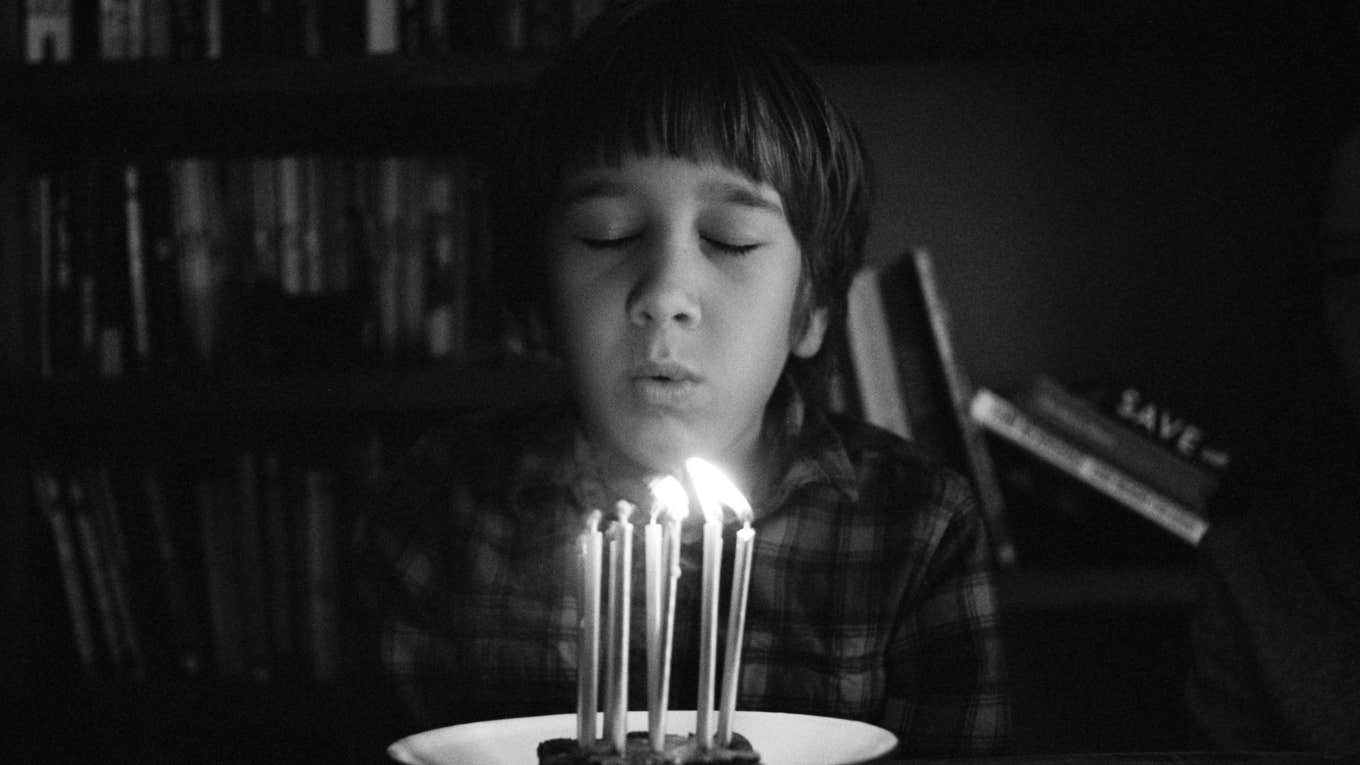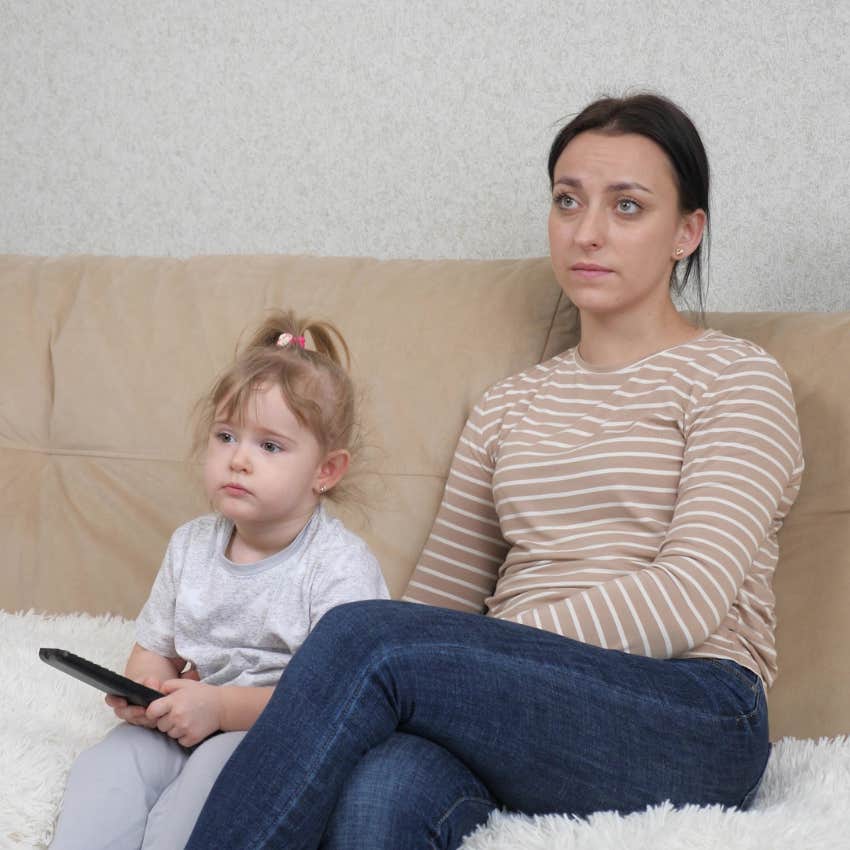'I Felt Like A Failure' — How Attachment Parenting Took Over My Life
Balancing high hopes, career challenges, and the constant quest for perfection.
 Annie Spratt | Unsplash
Annie Spratt | Unsplash When my daughter was born, I was determined to be a breastfeeding, co-sleeping, baby-wearing, cloth-diapering hippie mama. Nine months later, the only things that had stuck were the cloth diapers. I had just started my daughter on formula; she had been in her Baby K'tan carrier exactly five times and never once slept in her fancy little co-sleeper, which I returned to the store. I felt like a failure.
In addition, I was trying to juggle a freelance career with a baby. "Oh, you can work while your child stays home!" other moms would say excitedly, but I couldn't.
I had to hire a sitter for 20 hours a week and even then, I was working late into the night, over the weekends, and during every naptime.
On top of that, I was trying to make organic baby food and make sure she had enriching experiences that didn't include watching the Today Show while mommy double-fisted coffee.
One day, as I mixed some Annie's organic macaroni and cheese for lunch, I looked at the ingredients. They looked eerily familiar. I grabbed a box of off-brand macaroni and compared it. The only difference was Annie said "organic" in front of "cheese product."
Attachment parenting took over my life, and I gave up, feeling like a failure.
 fizkes / Shutterstock
fizkes / Shutterstock
The ideal of perfect parenting is just a guise. A Potemkin village set up to convince you that all is not so haphazard and horrible in the land of parenting.
There is no Shangri-la of breastfeeding, co-sleeping, or wholly organic perfection. Do you want to know why? Because every once in a while, someone's going to need a cheese puff, and it's all going to be okay.
In her book The Conflict, renowned feminist author Elizabeth Badinter decries the ideal of attachment parenting as ruinous to women and the feminist movement. And I don't think she's too far off the mark.
Badinter connects the development of the natural parenting movement to the displacement of women in the post-World War II economy, the economic slump of the 1990s, and the oil crisis of 1973. Each of these economic shifts, Badinter argues, caused society to reexamine the influence of capitalism on the family.
Women who had been brought up under a new feminist reality saw the toll that balancing career and family had on their mothers and returned to a new ideal of "maternalism." These women, Badinter writes, "were receptive to the new order of the day: children first."
That was the top of the slippery slope that led down to attachment parenting.
Badinter is scathing in her denouncement of attachment parenting advocates, whom she believes force women to tether themselves to their children at risk to themselves, their welfare, and their identity. For Badinter, attachment parenting is regressing society, and the La Leche League is Public Enemy No. 1.
Badinter composes her argument with well-documented research and articulates vitriol. So much for ending the mommy wars, this book stokes the flames — noting that French women with their governesses, nannies, wet nurses, boarding schools, and formula are better able to develop their identities and careers.
And Badinter's arguments seem to ring true. Many of the parents I know who embrace attachment parenting readily admit that their parenting style causes them to lose themselves within their kids, "But," noted one mom, "I wouldn't have it any other way. That's what it means to have children."
Badinter's book, while forceful, misses the point that those who embrace natural parenting are more than willing to get lost in their children and find joy in the experience (or at least insist they do). And is Badinter slinging indicatives against a movement any more helpful than attachment parenting advocates forcing guilt on formula-using working moms?
Many of Badinter's critics write her off as a woman of privilege who doesn't understand the realities of parenting because she's been protected from them by money, which gives her access to better schools and better childcare.
But I think Badinter's arguments if anything, support women who face tough economic realities and seek to remove the guilt that comes from not being able to give up everything to devote themselves to their children.
In my own parenting, I've struggled with the balance between devoting myself to my child and working on my career.
 Valery Zotev / Shutterstock
Valery Zotev / Shutterstock
The realities of who my daughter is didn't work with attachment parenting, and the realities of who I want to be don't mesh with that style either. And yet, there are some things we hold on to I do my best to feed my daughter the healthiest food I can muster but if one day when we're exhausted and sick and we need to get French Fries from McDonald's, then that's okay.
I wash my hands of that guilt. It's the same with television. In our house, it's off. But the weekend she got Hand, Foot, and Mouth disease, and Mama needed a freaking break, Shaun the Sheep came to the rescue.
And I have a babysitter, yes, but I do my best to be present with her in our moments together. Badinter's evaluation of American parenting hits notes of truth.
In Western Europe, Badinter points out, where maternity policies are generous and birthrates are high, parents do seem more relaxed. Comparatively, American parents are often squeezed to the breaking point by demanding companies that require long work hours and provide little to no maternity leave. Something has to change.
Yet, like the La Leche League and the "attachment parenting or die" types, Badinter misses the point.
There is no one-size-fits-all solution to parenting. And there are no quick answers to the juggling act all parents are forced into when they face their little one and think: Oh god, now what?
Lyz Lenz's writing has appeared in the Huffington Post, The Washington Post, the Columbia Journalism Review, The New York Times, Pacific Standard, and others. She is a columnist for the Cedar Rapids Gazette.

